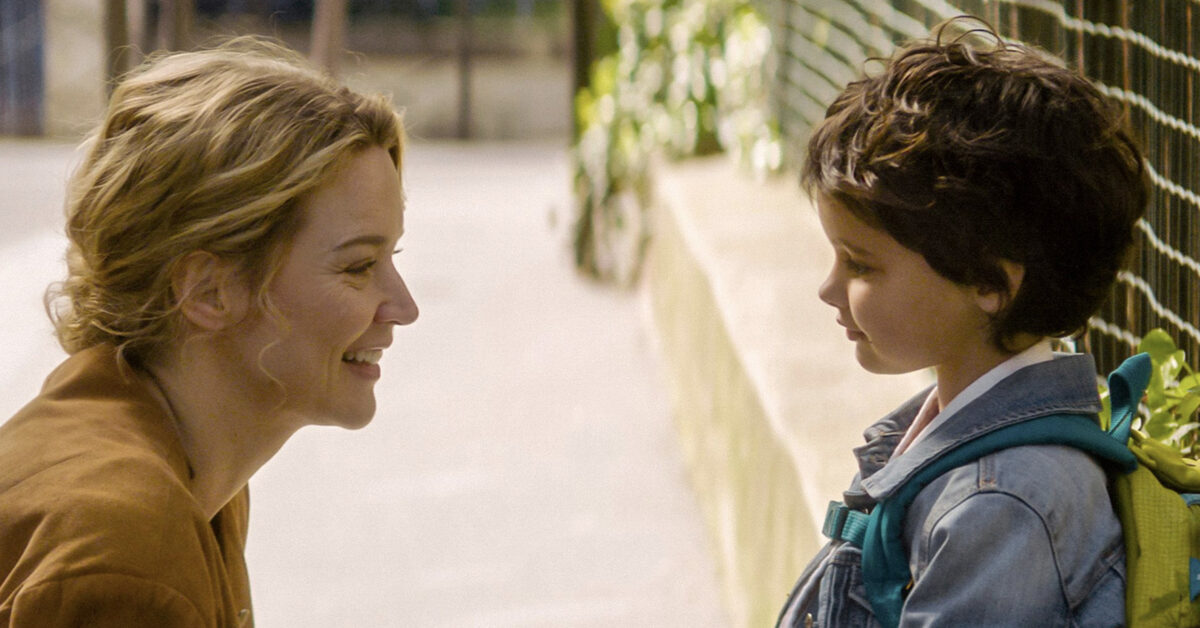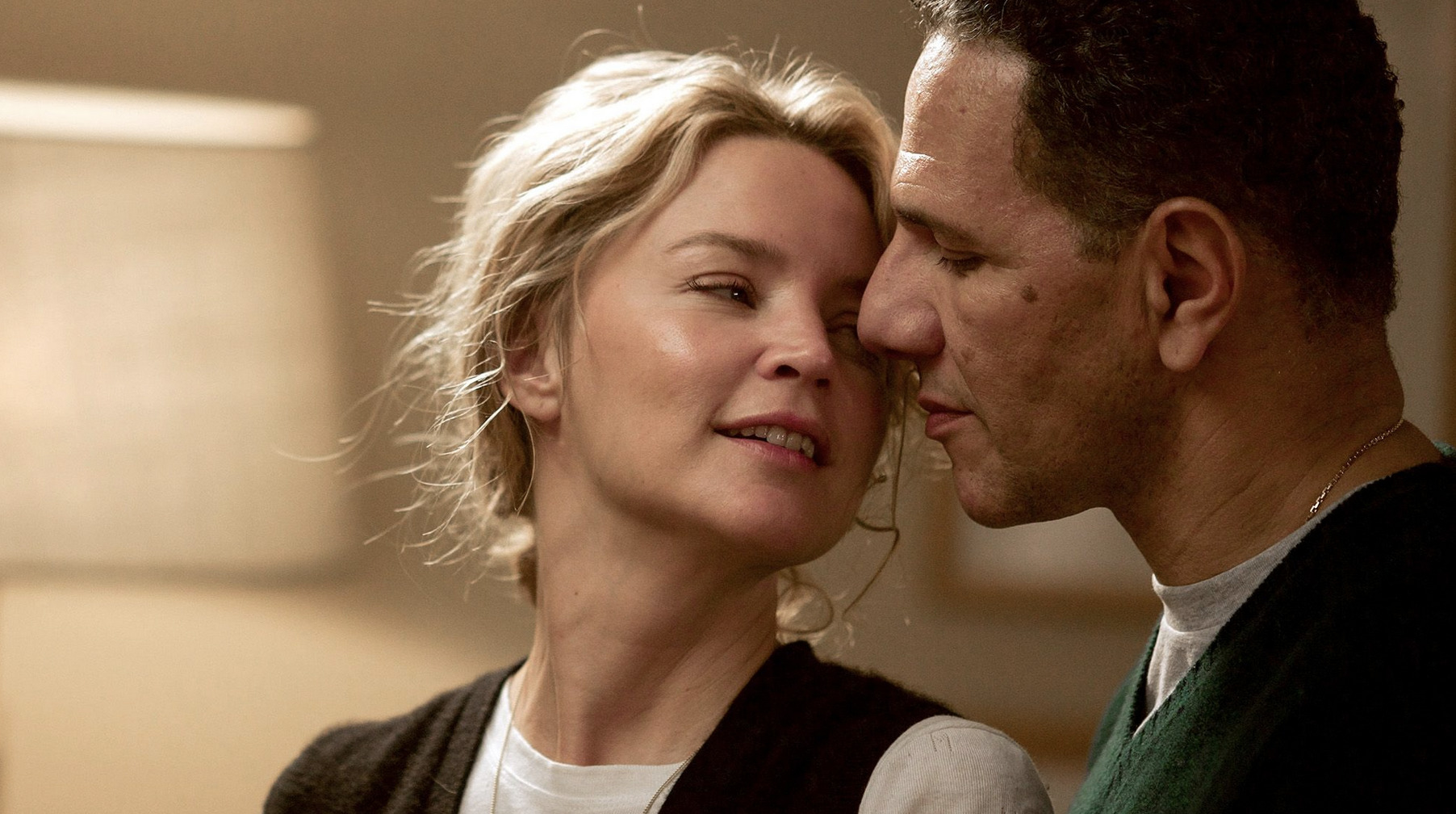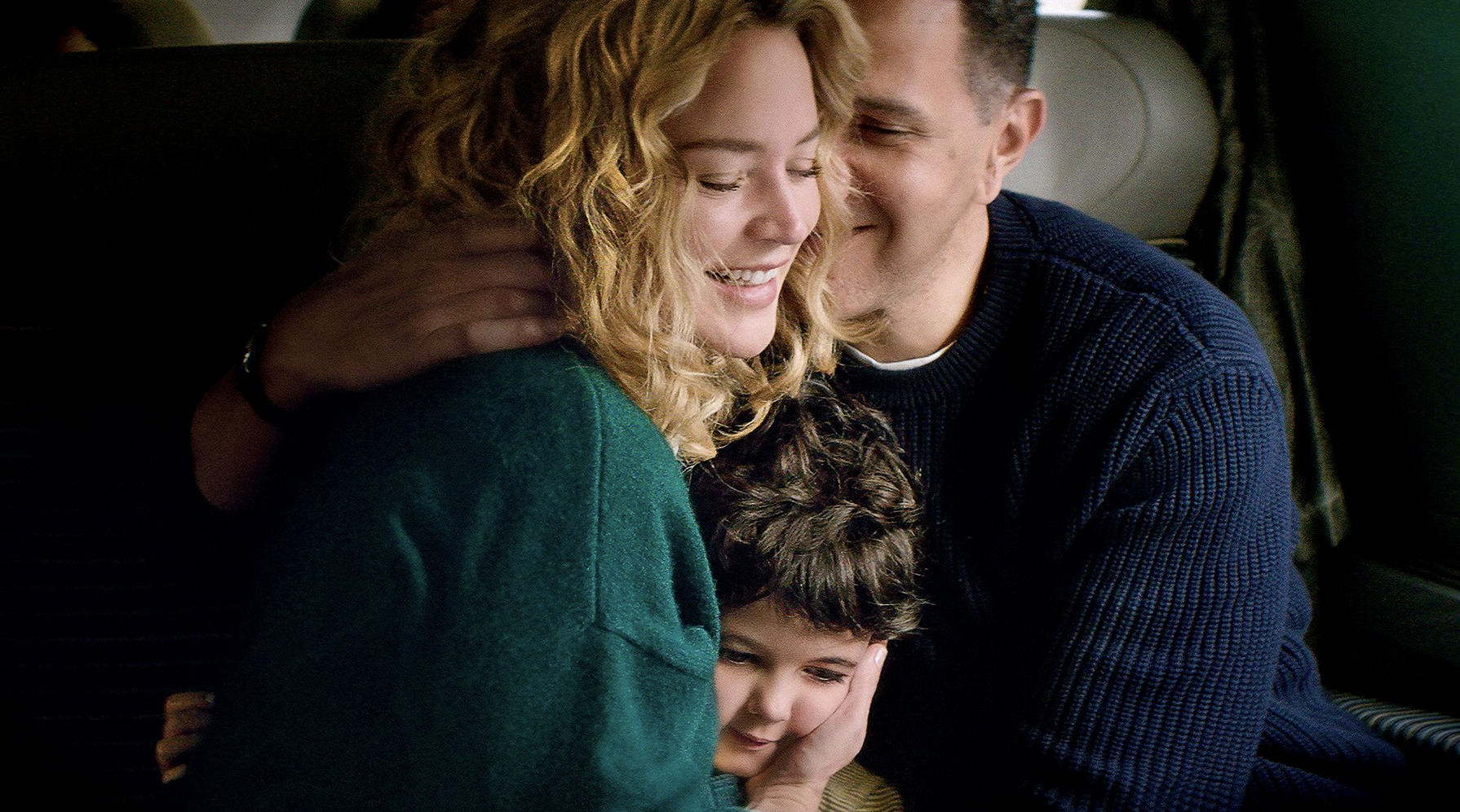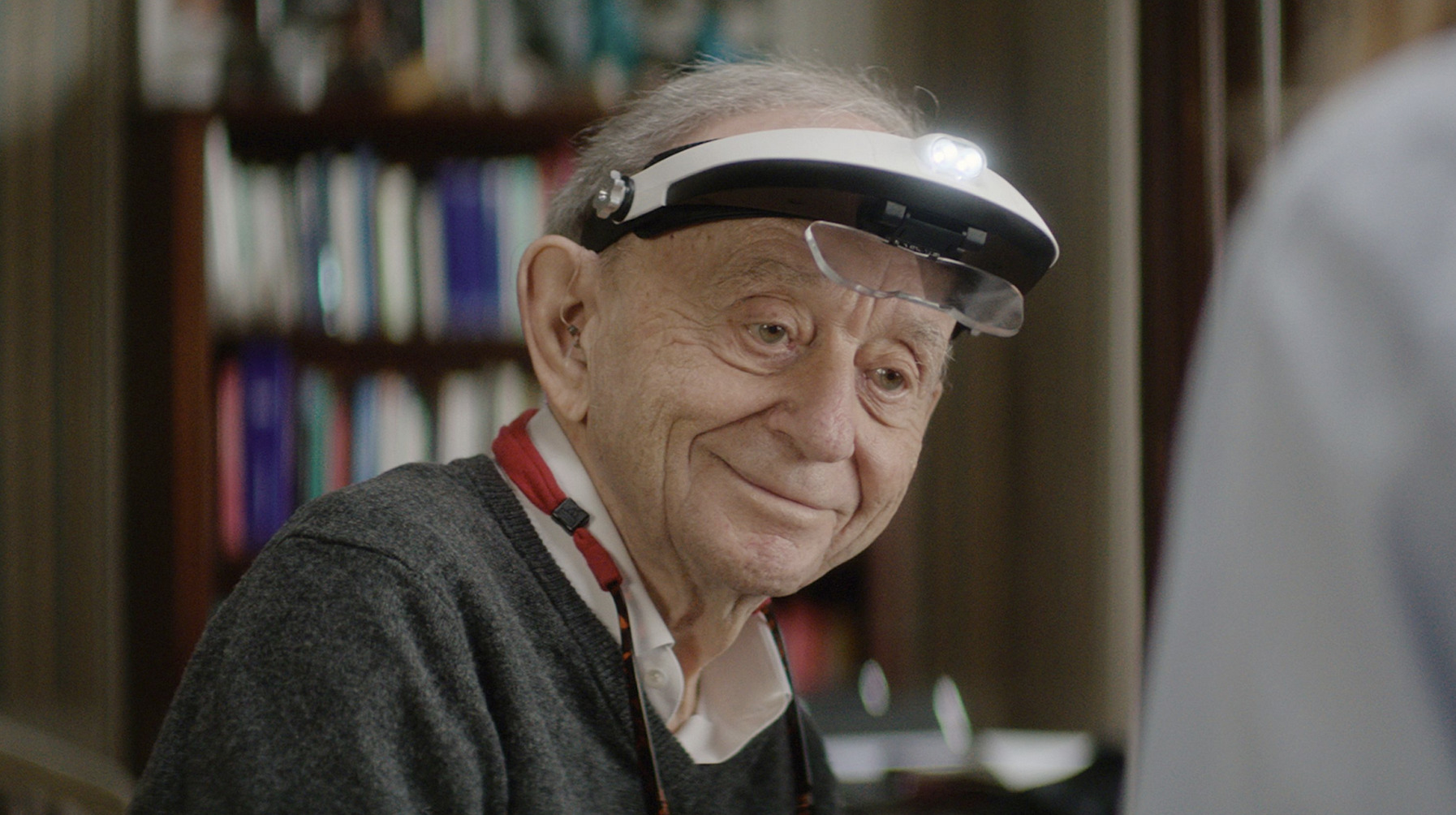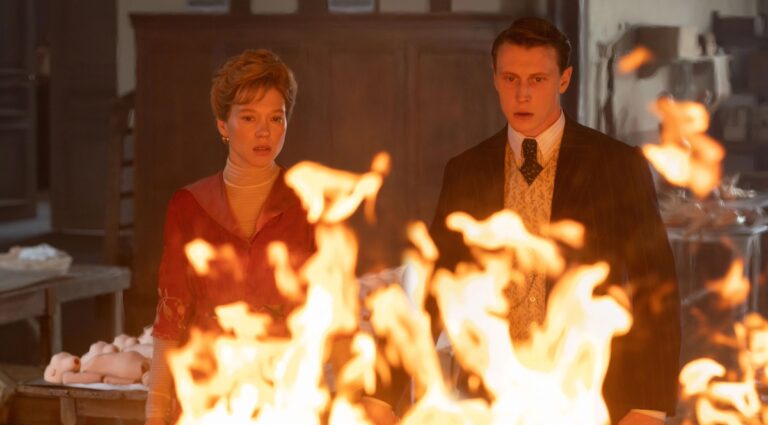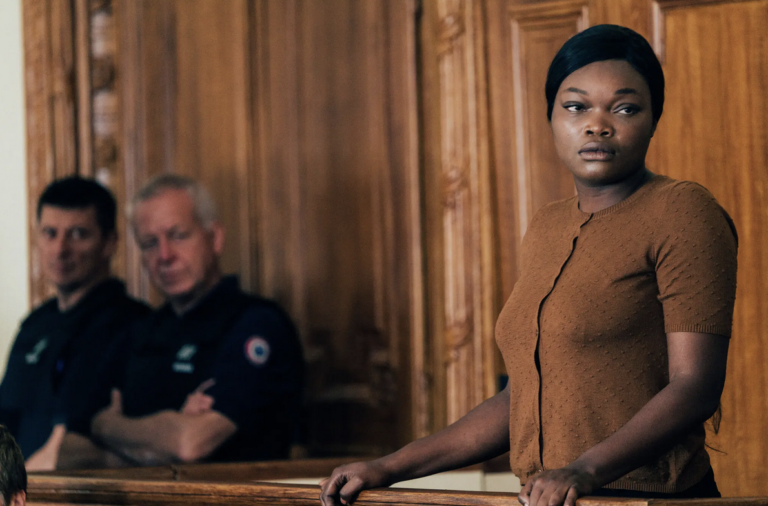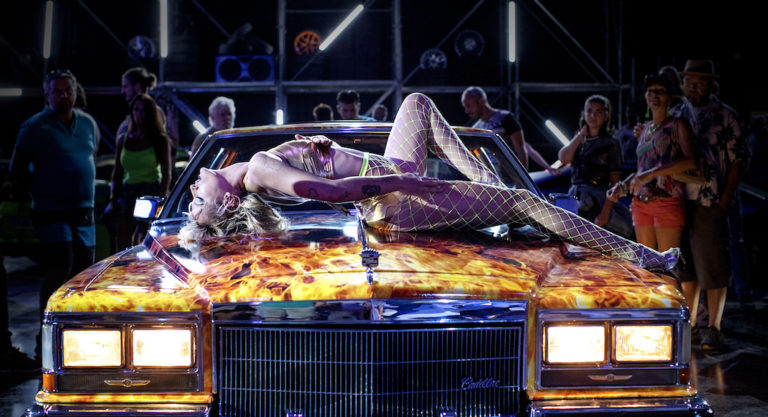When Rachel (Virginie Efira) and Ali (Roschdy Zem) meet in director Rebecca Zlotowski’s film Other People’s Children, they fall hard, quickly and passionately. But despite the romantic setup, the real meat of the film’s story involves Ali’s four-year-old daughter, Leila (Callie Ferreira-Goncalves). Rachel, a passionate high-school teacher, takes to the stepmother role with gusto, buying Leila gifts, picking her up from afterschool activities, delighting in Leila’s affection. Pinpricks of tension emerge when Rachel crosses paths with Ali’s ex (Chiara Mastroianni), a reminder that she isn’t actually Leila’s mother.
Rachel soon finds herself as attached to Leila as she is to the girl’s father, the unexpected depth of her feelings awakening in this 40-something-year-old woman a desire to have a child of her own, something she’d long accepted she would never have. At her annual check-up, her gynecologist (played by legendary documentary filmmaker Frederick Wiseman) reminds her bluntly that if she wants to have a baby, she’d better get cracking.
Rebecca Zlotowski, a former professor of French literature, has made four critically acclaimed films: Dear Prudence, Grand Central, Planetarium, and An Easy Girl. This is the first that draws openly from her life, and we feel her personal connection to Rachel’s desires and disappointments, her joy and heartache pulsing through every frame. With her star, the Belgian actress Virginie Efira (2022 César award winner for best actress for her performance in Alice Winocour’s Revoir Paris), Zlotowski has created a 21st century everywoman. Rachel lives the familiar frustrations of a middle-aged woman banging up against societal expectations and her own biological clock. But the details of her moving story are all her own. She reminds us that there are many acceptable and fulfilling paths in life. There’s power in wanting something passionately and grace in choosing gratitude whether you get it or not. Rachel is a woman who believes in herself and creates her own happiness. We root for her and also know that whatever happens, she will be alright.
Zlotowski and I sat down via Zoom to talk about putting real life on screen, cinematic stepmoms, and her great affection for Frederick Wiseman.
When the film begins it almost feels like a fairy tale, with jazz playing and the Eiffel Tower twinkling against the night sky. Did you want the opening to feel like a romantic comedy?
There’s definitely a rom-com trope in the beginning. I was aware I needed to start very lively and joyfully and generously. I desperately wanted Rachel to be seen as a fulfilled, super happy, joyful woman. So, there’s the rom-com beginning—and the love story comes afterwards. The fact that they fall in love is not the story. The story is the encounter with the child, but I needed the love encounter to start the narration.
In the beginning Rachel is showing her class a movie and she tells her students, “It’s the adaptation of a book. It ends badly. You know, you’ve read the book.” Is she revealing her life philosophy, or is it a hint for the audience?
Because they’ve read the book, they know it’s going to have a bad ending. Love stories never finish well, or family stories because of all the dysfunction. It’s literally my philosophy. Also, it’s Les Liasons Dangereuses. They’re watching the Roger Vadim adaptation of the Pierre Choderlos de Laclos book you’d typically read in in high school with this type of teacher. The adaptation is fantastic, not only because of the Thelonious Monk opening, but it’s also full of libertinage and has a very cruel ending. It’s about power. If I can allow myself this little digression, the three adaptations of this book—the Milosz Forman, the Roger Vadim, and the Stephan Frears versions are all amazing. It’s the only case I know in which all the film adaptations of a book are brilliant.
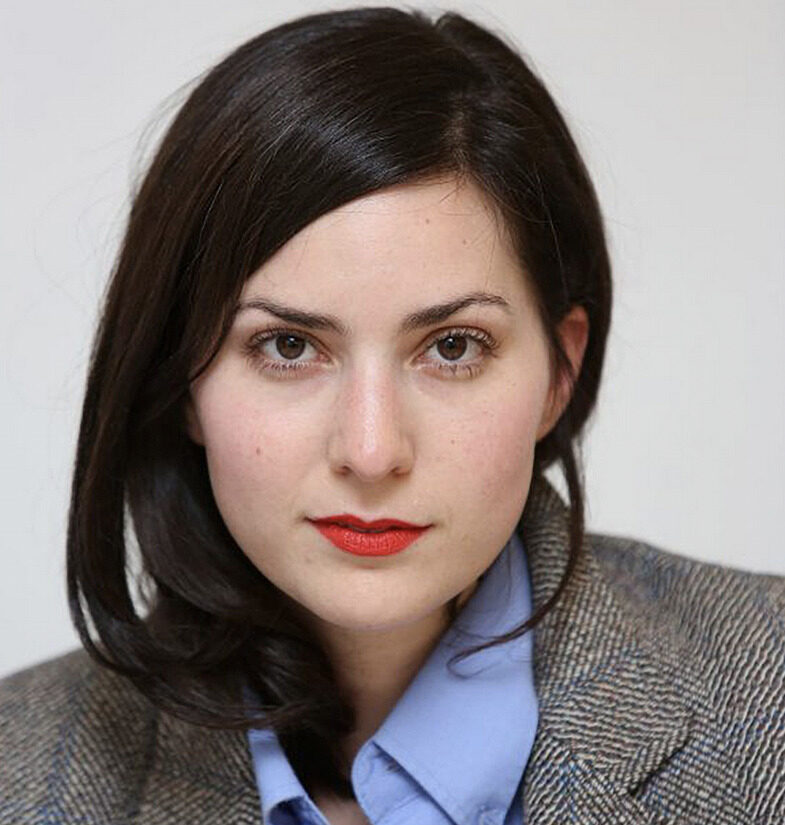
How was the film inspired by your own experience?
This is my fifth film and it is the first time that I felt, honestly, entitled to use material from my personal life. French auteur directors put a lot of personal stuff in their scripts, but often it’s blurred or hidden. But in this case, I shot in my city, Paris. The character is my age. She has an alternative parallel life that I could have had, because I started as a teacher. The actor that plays her dad is my dad. The grave she’s praying in front of is the grave of my mom. It’s not about being fetishistic with autobiography. It was about it being easier. My father is a good actor, and he was cheap and available, and I wrote a character who talks the way he talks and who’s like him in real life. All that personal material wasn’t only because I had a feminist political statement to make at this moment in my life. It was also easier as a filmmaker. We’d been stuck in our apartments during the pandemic with only ourselves to look at in the mirror. All this allowed me to make a personal and autobiographical film.
Where does the film sit in the trajectory of movies about ordinary women trying to figure out their place in the world?
People say that every story has been told, and I’m like, no! I think the representation of this character, the stepmom, is missing in cinematic history. When I started thinking and writing about this, I wanted to look at other films and see how filmmakers had dealt with the subject before, and I was surprised and shocked to see that there was no film dealing with this specific topic. Or only in a very different way, with rivalry, bitterness, where the women are enemies, like in Stepmom with Susan Sarandon and Julia Roberts, two beautiful actresses I love. This character had never been the protagonist of a film, and the dramatic or romantic material that could arise from this situation has never been looked at in a loving way. Just the fact that this character in my film is luminous, bright, a nice person, a loving daughter, is transgressive in a way. The character’s problem is not that she hates the kids, it’s that she loves them too much.
The film focuses on many different experiences of motherhood. What did you want the film to say about mothers?
I don’t know what it says about mothers. It’s more about parenting. The theme of the film for me isn’t only about being a biological mom, because obviously she’s reaching the limit of her fertility and the possibility of ever being a mom. But I wanted to shine a light on the fact that you don’t have to be a biological mom. At the core is this metaphysical anxiety people who don’t have children feel sometimes, that we won’t transmit anything to anyone and there will be no trace of us when we die. That’s why the ending of the film was deeply rooted in the script from the beginning. I always knew she would meet her former student in a bar and he would say, hey, I remember you, I haven’t forgotten you.
What were your artistic influences for this film?
There’s something about movies from the 70s in your beautiful country of cinema, for example Kramer vs. Kramer, The Unmarried Woman, everything with Jill Clayburgh. She’s such an amazing actress. Jill Clayburgh and Diane Keaton were inspirational for me making this film, and Meryl Streep, but really Jill Clayburgh and Diane Keaton. I love those tales told by amazing filmmakers like Alan Parker that were able to do Midnight Express and Shoot the Moon in the same year. Doing an autobiographical project stressed me out a little bit. I was like, can I do that? But I realized yes, I can have one autobiographical project that I’m burning to tell and still be a filmmaker who isn’t just looking at herself.
What made you cast Frederick Wiseman?
Don’t you think he’s the perfect gynecologist? Frederick is a friend of mine. We met in Venice, when we were showing our films [at the Venice Film Festival]. Of course, I’m a huge admirer of his work, and we kept in touch. He lives in Paris, we have friends in common and he would do cameos in other films, and one day I told him I’m very jealous, how come you shoot for other people and not in my films? And he was like, “Just give me a part!” But I knew it would have to be my next film—he’s 100 years old—so, he better do it now, or you never know. The only part that wasn’t cast was the gynecologist, and I had in mind a woman in her 60s. I wanted the character to be open-minded, not judgmental. I wanted Rachel to experience the end of her fertility in a very interior way. I didn’t want, like, some cab driver yelling at her and being, like, “Hey, you’re too old, wake up lady!” I didn’t want the gynecologist to be tough and hard and judgmental, and what better person than Fred Wiseman, and his wiseness?
His name is Dr. Wiseman!
We printed a prescription pad for him with “Wiseman, Gynecologist,” and it’s the best prop I’ve ever had. I gave it to him, and he was very happy. He brings some comedy to these scenes. It’s pretty difficult to shoot those scenes. Once a year we all experience this very uneasy appointment and it is something we never talk about, or we talk about it only when there’s a problem, cancer or something, but it’s just part of our life. My producer read the script and said, “I love everything, but are we obliged to go to the gynecologist?” And I was like, “That’s what I tell myself when I have to go. But I have to, so you know what, we’re going to show it!” The problem is if you want to show it in an enchanting way, you have to have a good idea. Wiseman was the perfect idea.
OTHER PEOPLE’S CHILDREN opens exclusively in theaters on Friday, April 21 in New York (Film at Lincoln Center and IFC Film Center), Los Angeles (Laemmle Royal), and Chicago (Music Box Theatre), followed by a national expansion.
Andrea Meyer has written creative treatments for commercial directors, a sex & the movies column for IFC, and a horror screenplay for MGM. Her first novel, Room for Love (St. Martin’s Press) is a romantic comedy based on an article she wrote for the New York Post, for which she pretended to look for a roommate as a ploy to meet men. A long-time film and entertainment journalist and former indieWIRE editor, Andrea has interviewed more actors and directors than she can remember. Her articles and essays have appeared in such publications as Elle, Glamour, Variety, Time Out NY, and the Boston Globe.

